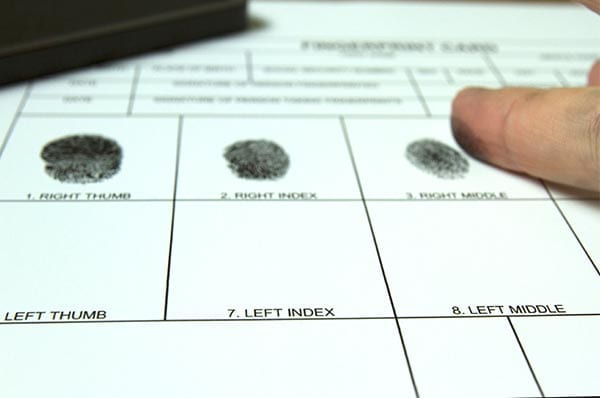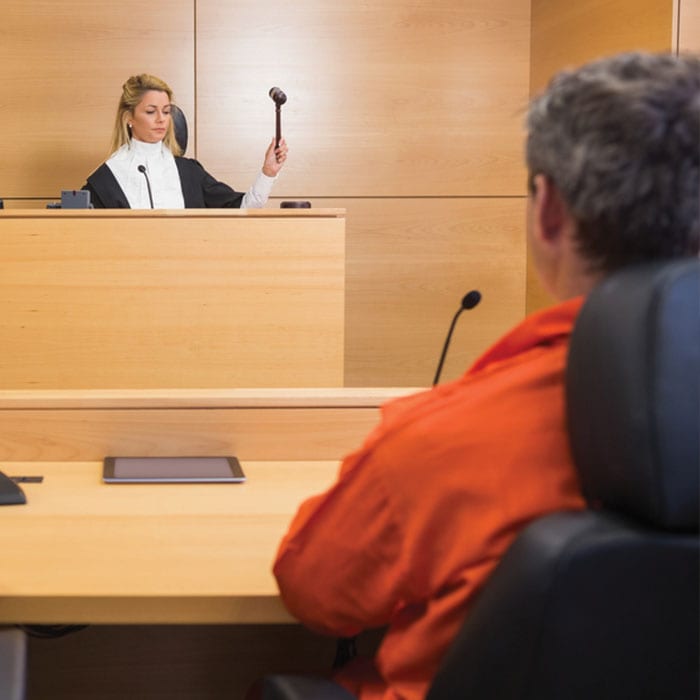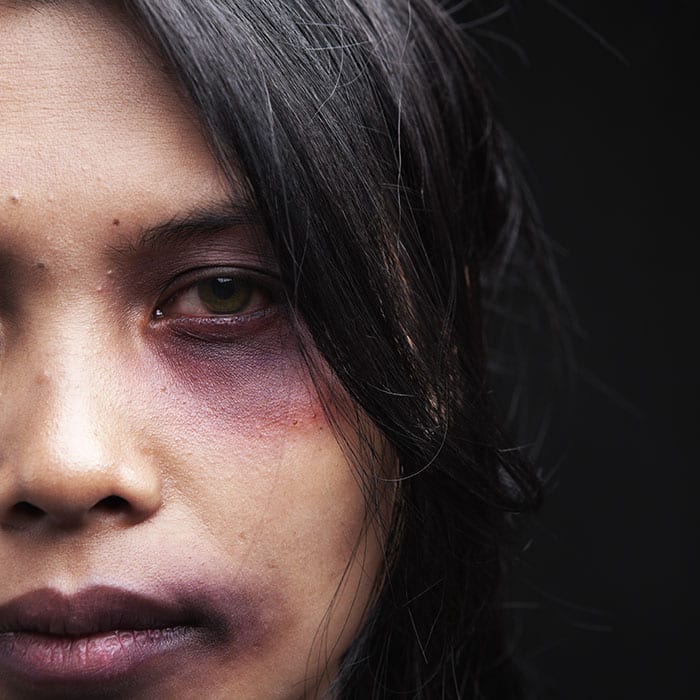Do you need a Criminal Defense Attorney in Fresno? If you have been arrested or charged with murder, it is essential to obtain legal council for help right away.
What are Murder Charges?
First-degree murder is the unlawful killing of any human or fetus with malice aforethought. Both first and second-degree murder require malice aforethought. Malice is either expressed or implied. When it is expressed, death was intentional. When it is implied, death resulted from either an intentional act or related consequences.
Malice aforethought doesn’t mean someone acts with hatred towards someone else. However, it means that someone with an unprovoked, disregard for human life acted in a way that most likely would result in the death of another person.
In order to be convicted of 1st-degree murder, one of the following must be true.
- Death was either intentional, done consciously or planned. For example: a man waits inside his ex-girlfriend’s apartment. Until she comes home. Then, he kills her.
- The murder occurred during a felony. For instance, either fire, robbery or rape. If a person set a house on fire, then someone died as a result of the fire. Then, first-degree murder charges follow.
Testimonials
“My husband and I have really had our ups and downs these past four years and it was helpful to watch your poignant YouTube video a few months ago where you described a story about never wanting to leave your clients behind. We appreciate that, believe me, as this whole journey has been unbelievably hard. Thank you for your continued support as we approach what will hopefully be the final chapter of my husband’s journey. I am hoping for the best of all outcomes.”
“After the first meeting with Mark, I knew we were in the right place. Mark was able to get answers and call all the right people to protect my child. We would never deal with the criminal justice system again with out Mark Broughton at our side. We are very thankful we found him and the matter with our son went away quickly.”
“Mr. Broughton is top notch. My son was facing a felony, strike charge. Mr. Broughton fought for my son’s pre-trial release against the recommendation of the probation department, and my son was able to come home. Today, the case was resolved and the outcome was minor in comparison to the charge. I highly recommend Mark Broughton!”
“He is an amazing lawyer, I had a near impossible felony case and he helped me bring it down to a misdemeanor. Amazing personality and a kind human being!”
“I highly recommend Mark Broughton. His expertise, professionalism, and empathy in our complex case gave us the feeling of confidence. I cannot begin to show or say how much we are grateful to you. Mark Broughton, you are truly an Angel in disguise. Again Thank You!”
“I was charged with 2 felonies and was at risk of jail time, losing my job and my children, basically my entire life. Mark worked closely with me and… I was able to plead no contest to 1 misdemeanor.”
“I am forever grateful for what Mark has done for my me and my family.”
“Thank you Mark… for the excellent work you all did on my son’s cases and the on-going support you all showed my family and myself through this very difficult time in our lives.”

KARON

KAREN

JILL

ANONYMOUS


RAQUEL


ANONYMOUS



ANONYMOUS


ANONYMOUS
Get Legal Help Today!
(559) 691-6222
Have Questions? Don’t go it alone. Let’s sit down one-on-one. I will review your case and your options for the best possible outcome.
Have Questions? Don’t go it alone. Let’s sit down one-on-one. I will review your case and your options for the best possible outcome.
Penalties for First-Degree Murder
The penalty for first-degree murder is 25 years to life in a California state prison. This penalty increases to 25 years to life in prison without the possibility of parole if the first-degree murder was based on a hate crime. If the crime was committed against a victim because of race, religion, gender, disability, sexual orientation, or nationality, it could be considered a hate crime.

Capital Murder
Capital murder is 1st-degree murder with special circumstances. The penalties for capital include:
- The death penalty, or
- Life in a state prison without the possibility of parole.
First-degree murder becomes capital murder under these circumstances:
- Intentional murder also committed for financial gain.
- There was more than one murder victim.
- A police officer, firefighter, prosecutor, judge, juror, or elected official was murdered.
- A witness was murdered to prevent them from testifying.
- The victim was murdered in the process (before, during, or after) committing any of the felonies under the felony-murder rule.
- A person was murdered because of their race, religion, nationality, or country of origin.
- Murder as a result of a drive-by shooting.
- Murdering someone for the benefit of a street gang.
For the full list of capital murder charge circumstance, please see California Penal Code 190.2.

Felony Murder Rule
The felony murder rule applies to both 1st and 2nd-degree murder. It holds people liable if they commit murder, while also committing a felony. Murder does not have to be intentional. However, it does need to be logically related to the felony committed. For example, if someone sets fire to a building and then someone dies. Then, the felony murder rule applies. This unforeseeable death makes the arsonist liable for murder charges. That is, as long as it was more than a coincidence between both the time and place of the murder and the other felony.
First-Degree Felony Murder
The felony murder rule only applies to these felonies:
- Arson
- Robbery
- Burglary
- Carjacking
- Train wrecking
- Kidnapping
- Mayhem
- Torture
- Certain sex crimes
- Rape
- Unlawful acts of sodomy
- Unlawful acts of oral copulation
- Forcible acts of penetration
- Lewd acts with a minor
Legal Defenses for Murder
California’s self-defense laws can protect you if you acted in self-defense or defense of others. You have to reasonably believe that you or someone else is in immediate danger of:
- Being killed
- Suffering great bodily injury
- Rape, robbery, or some other forcible act
If any of these situations apply, then you have the right to use whatever measures necessary to stop these from happening.
A killing can be an accident if:
- There was no criminal intent to do any harm
- The defendant was not acting negligently
- The defendant was following the law at the time of the killing
It’s possible to plead “not guilty by reason of insanity” when charged with murder. The M’Naughten test must be taken in order to prove that the defendant only killed because they didn’t understand what they were doing. Or they couldn’t distinguish between right and wrong.
If it is proven that the defendant was insane at the time of the murder, then he/she is generally charged with manslaughter. Then, the judge can sentence him/her to any amount of time in jail. Or the judge can commit him/her to a psychiatric hospital.
If you were questioned by the police and your statement was not voluntary, that statement might be suppressed (ruled inadmissible) in the trial against you.
If the only significant evidence against you is your statement, the case against you may have to be dismissed.
A lot of time, detectives will have a person in mind that they think committed the murder and try to get the facts to work with their theory, instead of looking for the facts and then formulating a theory. This often results in a coerced confession. There have been many instances where a suspect was interrogated for hours and finally says they did it so they can leave.
California has search and seizure laws that require the police force to have probable cause or a valid search warrant for specific areas in order to search someone’s person or property. If they go beyond the boundaries of their warrant or don’t have probable cause, then it becomes an illegal search and seizure.
Murder FAQ (Frequently Asked Questions)
Under California law, the three types of murder are Capital Murder, 1st-Degree Murder, and 2nd-Degree Murder. Florida, Pennsylvania, and Minnesota recognize a 3rd-Degree Murder charge that’s similar to a manslaughter charge in California.
Capital Murder is 1st-Degree Murder with “special circumstances.” The circumstances that elevate 1st-Degree Murder to Capital Murder include killing for financial gain, killing as part of a hate crime, killing more than one victim, killing a member of law enforcement, killing done as part of gang, as well as about 15 others listed in CA Penal Code Section 190.2 PC.
First-Degree Murder is defined by California law as the intentional killing of another person with deliberate and premeditated “malice aforethought” and without any lawful excuse (such as self-defense).
Second-Degree Murder differs from first-degree murder in that it wasn’t deliberate or premeditated.
In the eyes of the law, 1st-Degree Murder is the worst type of murder. As such, it carries the most severe penalties in terms of sentencing if convicted.
Homicide is a general term that means someone has been killed by someone else. Both murder and manslaughter are homicide charges of different degrees of severity and carrying different penalties.
The main difference between manslaughter and murder charges is the intent behind the crime. Manslaughter is when someone has been killed but there wasn’t a premeditated intention to do so with malice aforethought.
First-Degree Manslaughter — voluntary manslaughter — is considered a “heat of passion” crime. It is when one person kills someone else during a sudden fight, for example, or in unreasonable self-defense or by acting with a conscious disregard for human life.
Second-Degree Manslaughter — involuntary manslaughter — is when a person kills someone else through gross negligence or recklessness. It could happen while committing a lawful act unlawfully (like driving a car while under the unlawful influence of alcohol or drugs, for example) or it could happen while committing a crime but with criminal negligence.
Sentencing for manslaughter depends on the level of the crime you’re convicted for. You could be facing anywhere from 3 to 11 years in state prison if convicted of voluntary manslaughter. Sentencing can range from 2 to 4 years for involuntary manslaughter.
Have you been legally accused of committing murder? If you have been arrested or charged with a crime, it is essential to obtain legal counsel for help. It’s important to take your charges seriously. Don’t just hope for the best. Hire an attorney who understands your situation and the consequences you face.

Your Defense Attorney for Murder Charges
I’m Mark A. Broughton and I’m here to fight for you. I have been a defense Attorney for 40+ years and have represented thousands of people accused of crimes. I have extensive experience representing citizens charged with Felonies, Federal Crimes, White Collar Crimes, Violent Crimes, Gang Crimes and Sex Crimes to name a few.
Your Defense Attorney for Murder Charges
I’m Mark A. Broughton and I’m here to fight for you. I have been a defense Attorney for 40+ years and have represented thousands of people accused of crimes. I have extensive experience representing citizens charged with Felonies, Federal Crimes, White Collar Crimes, Violent Crimes, Gang Crimes and Sex Crimes to name a few.
About Mark Broughton:
Compassionate, highly experienced, exceptional reputation, ethical and honest:
Mark Broughton has been practicing law for over 40 years. Mark estimates he has conducted over 200 jury trials. For example, DUIs, drug cases and sex cases. Also domestic violence, assaults and “three-strikes” cases. Plus, dozens of cases involving criminal street gangs, gun/deadly weapons, drive-by shootings and robberies. Finally, attempted murders and murders (including special circumstance murder cases).
He received many outright not guilty verdicts for his clients in all of these types of cases, including several murder cases. At one time, between 2005-2007, the jury found his clients not guilty, that is, in four separate cases in a row.
Mark Broughton is qualified as not only as a death penalty lawyer but also he is on the special circumstances/death penalty panel of attorneys in Fresno, California. Plus, he is regularly appointed to special circumstances/death penalty murder cases by the Fresno County Superior Court.
Other Qualifications:
- Certified Specialist Criminal Law, State Bar of California
- Board of Trustees, State Bar of California
- Chairman, Fresno County Bar Association, Criminal Law Section
Mark Broughton enjoys close relationships with his clients. He sees every individual’s situation. Not only with compassion but also with empathy. Plus, he not only believes that every person has the right to a fair trial but also that they’re innocent until proven guilty.
Above all, he enjoys helping reunite his clients with their families. That is, during and after dealing with perhaps the most difficult time in their lives.











